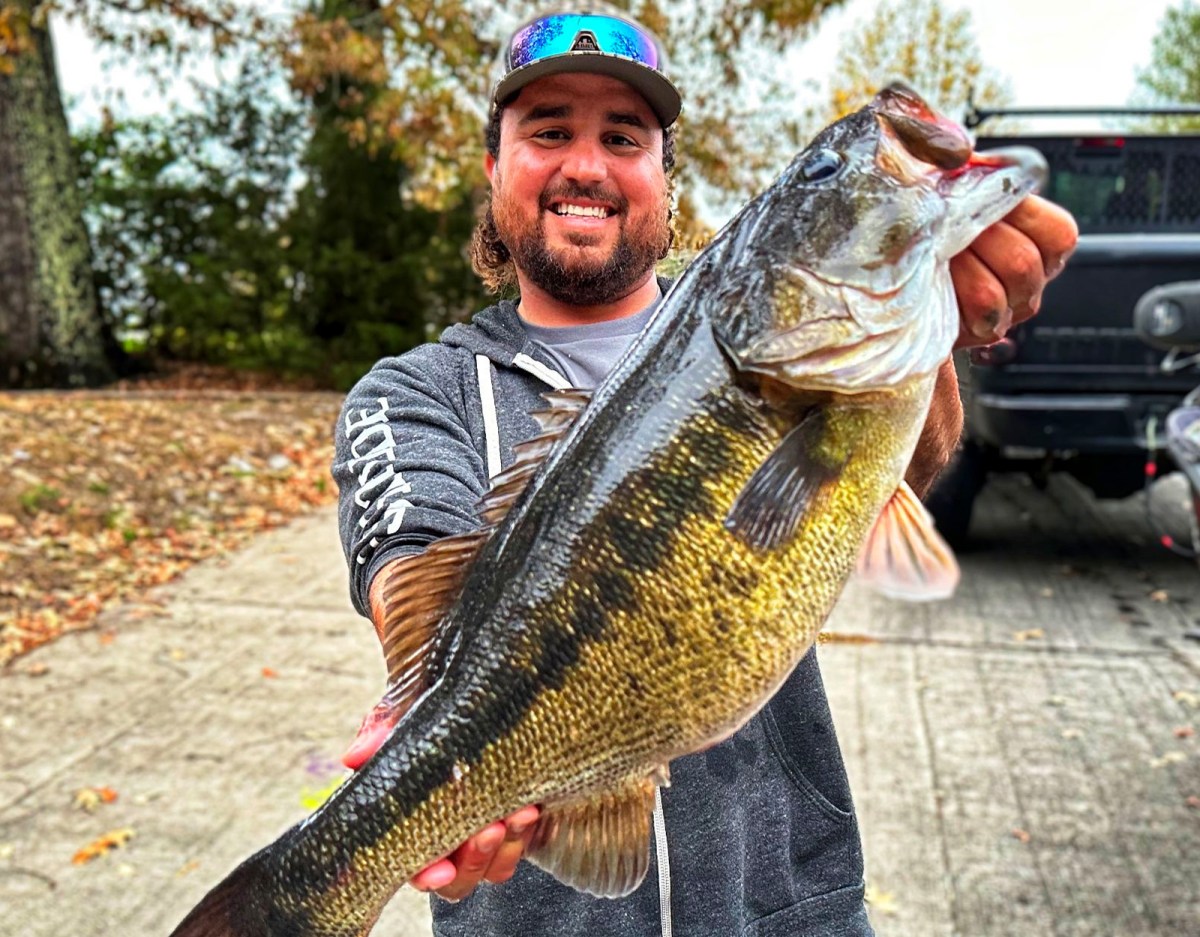Officials in Tennessee certified a new state-record bass Friday after confirming the species in a lab. And while they’re recognizing the latest addition to the record book, they say the fish, an Alabama Bass, shouldn’t be in Tennessee waters in the first place.
In a news release, the Tennessee Wildlife Resources Agency said local fishing guide Caleb Ball caught the state-record Alabama bass from Parksville Reservoir in Polk County. Bell’s bass weighed 7 pounds 3 ounces — just three ounces heavier than the previous Alabama bass record, which was caught in 2014 from the same lake.
“Unfortunately, Alabama Bass are an invasive species that was introduced illegally in Tennessee,” the agency noted. “Alabama Bass currently impact numerous reservoirs associated with the Tennessee River.”
The TWRA explained that the species jeopardizes native bass species by competing with them for resources. They can also hybridize with smallmouth bass, an even bigger concern that could have “potentially devastating effects” on local fisheries, according to the agency. Officials used Friday’s announcement as an opportunity to remind anglers not to move Alabama bass (or any other fish) from one water body to another.
Bell recognized these concerns himself in a recent Facebook post calling attention to his new state-record bass, which he said the TWRA verified through DNA analysis. This was necessary because Alabama bass look nearly identical to a native subspecies of spotted bass. It can also be hard to tell the hybrids apart from the pure-strain smallmouth bass found in the state.
“Now, in a lot of our lakes — I think they surveyed either Chickamauga or Nickajack — the hybridization level is up to 60 percent between smallmouths and those Alabama spotted bass,” Bell tells Outdoor Life. “So what could happen in my lifetime is there will not be a true smallmouth bass on most of the Tennessee River, and in a lot of our other really well-known smallmouth lakes like South Holston and Cherokee.”
Bell, who runs BassQuest Fishing Charters, says he and his friend Alex Rudd set out to break the Alabama bass record last November. He says it only took a few hours fishing Parksville one morning for him to catch the 7 pound, 3 ounce fish on live bait, a gizzard shad he’d caught earlier with a cast net. Mostly because Rudd knew exactly where to go.
“He kept telling me about this little area [on Parksville] that he was kayaking, and he’s like, ‘Dude, I’m telling you, the state-record Alabama bass is in there. We need to go catch it,’” Bell says. “So we ran up there, and sure enough, three hours later, we had five fish over six pounds, plus that seven that I caught.”
Read Next: This State-Record Bass Won’t Make the Books Because Oregon Doesn’t Recognize It as a Game Fish
Rudd also knew someone at TWRA, and Bell says they were encouraged to go through the certification process if they caught a potential record. So, they called the agency, and a fisheries biologist came out to inspect and weigh the fish and collect a DNA sample. Bell then released the trophy Alabama bass back into the lake.
Under current Tennessee regs, Alabama bass are treated the same as native spotted bass and smallmouth bass in reservoirs where the invasive bass has been introduced. This would include Parksville Reservoir, which is on the Ocoee River and part of the larger Tennessee River watershed. The TWRA said those regulations were updated in February because of how challenging it can be to identify Alabama bass and tell them apart from native bass species.
“The biggest thing is just to keep those particular fish where they’ve already been introduced,” Bell says. “And in my mind, it was like, well maybe some 10-year-old kid will be down there crappie fishing with his grandpa and he’ll catch it.”
Read the full article here




